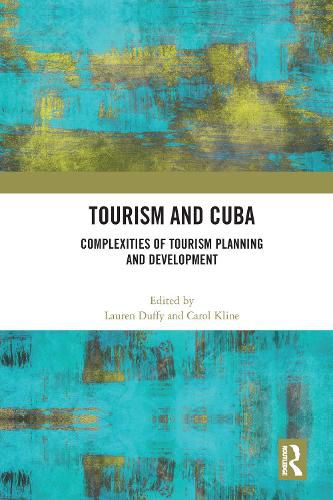Readings Newsletter
Become a Readings Member to make your shopping experience even easier.
Sign in or sign up for free!
You’re not far away from qualifying for FREE standard shipping within Australia
You’ve qualified for FREE standard shipping within Australia
The cart is loading…






Cuba has experienced many social, economic, and political changes since Raul Castro retained presidency of the island nation in 2008. This comprehensive volume examines how Cuba has restructured some of its core economic policies in order to tackle stagnation; these include allowing for more legalized private enterprises, reducing the number of State-employed workers, and fostering additional outside investments. The authors explore the surge of entrepreneurial activity in tourism among Cuban residents due to these reforms, whether that be offering new tourism products or expanding traditional ones.
Though the current diplomatic climate suggests continued uncertainty, the ripple effect of a potentially thawing relationship between Cuba and the USA resulted in an unexpected surge of international tourists wishing to experience Cuba before it opened to the American travel market. This book highlights the factors that are influencing, and in some cases complicating, tourism planning and development in Cuba. The authors explore a wide range of topics including tourism and land-use policy, competitiveness, responsible practices, gender and ethical advertising, the role of tour guides, emergence of casa particulares, experiential learning and solidarity, and authenticity through local art.
This book will interest students, researchers, politicians and investors with a focus on Cuba. It was originally published as a special issue of the journal Tourism Planning & Development.
$9.00 standard shipping within Australia
FREE standard shipping within Australia for orders over $100.00
Express & International shipping calculated at checkout
Cuba has experienced many social, economic, and political changes since Raul Castro retained presidency of the island nation in 2008. This comprehensive volume examines how Cuba has restructured some of its core economic policies in order to tackle stagnation; these include allowing for more legalized private enterprises, reducing the number of State-employed workers, and fostering additional outside investments. The authors explore the surge of entrepreneurial activity in tourism among Cuban residents due to these reforms, whether that be offering new tourism products or expanding traditional ones.
Though the current diplomatic climate suggests continued uncertainty, the ripple effect of a potentially thawing relationship between Cuba and the USA resulted in an unexpected surge of international tourists wishing to experience Cuba before it opened to the American travel market. This book highlights the factors that are influencing, and in some cases complicating, tourism planning and development in Cuba. The authors explore a wide range of topics including tourism and land-use policy, competitiveness, responsible practices, gender and ethical advertising, the role of tour guides, emergence of casa particulares, experiential learning and solidarity, and authenticity through local art.
This book will interest students, researchers, politicians and investors with a focus on Cuba. It was originally published as a special issue of the journal Tourism Planning & Development.